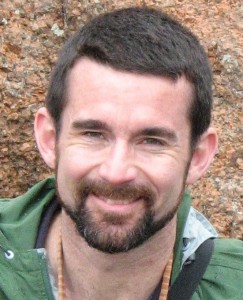 “If it ain’t broke, don’t fix it.”
“If it ain’t broke, don’t fix it.”
One commonly hears the mournful refrain that American healthcare is “broken”—whether demonstrated by reports “hospitals have been gaming the system to make their re-admission numbers look good,” the paradox that our escalating healthcare expenditures produce only average life expectancy outcomes, or (what may seem more mundane to policy makers) the ongoing noises over physician overwork and burnout.
As frustrating (perplexing? challenging? infuriating?) as those problems are, they do not of themselves demonstrate a “broken” system. Indeed, if we take seriously David Hanna’s axiom that “all organizations are perfectly designed to get the results they get,” we should be completely unsurprised at the products of our biomedical and healthcare enterprise.
Literature on communication between doctors and patients commonly emphasizes shared decisions, collaborative agenda setting, and incorporation of patient values and preferences into clinical plans of care. While all of these emphases seem to place the patient at the center of care, daily medical practice is also characterized by population focused, “quality” reports listing the number of patients not meeting “guideline” based goals; an incessant need to tick boxes or buttons in electronic records to verify what you have done or are about to do (just reading the patient’s meds list is not sufficient—you have to electronically verify you did so!); and endless protocols to (supposedly) ensure quality care.
While I won’t argue that our advances in technology and process are completely off-base (I think we have made reasonable progress in thinking about how we manage patient safety, chronic disease, and information flow), I do think that we have unwittingly designed the wrong system—and it is producing exactly the results it is designed for.
In an effort to prevent errors, we have adopted engineering and safety insights in order to ensure compliance with safety standards, and promoted “compliance” with guideline based therapies to ensure “optimal” patient outcomes. In an effort to think beyond just the individual, we have decided to focus on “populations” as well, and rate physicians on how well they perform caring for an aggregated group of individuals.
The result? Physician burnout due to the way our work environment has evolved, the volume of tasks to be tackled each day, and the constant intrusion of the “e-demands” of our increasingly electronic medical culture.
Our procedures and protocols often prompt us towards doing more and more, all the while achieving less and less of what looks like truly good medicine. Medical care should not be about following protocols, but about comforting and caring (and sometimes, though not always, curing).
Our system is not “broken,” it is functioning exactly as intended—as a complex biomedical and healthcare enterprise. The problem is that while this may work for engineering desired outcomes or maintaining a business model, it does not place the focus on the health or healing of patients.
The biomedical-healthcare enterprise directs us what to do, in order to be sure our subjects are compliant towards the end of achieving certain outcomes, but the people we care for are not subjects (passive, dependent entities). Rather, they are patients: independent, responsible moral beings who choose to entrust themselves to our care.
If we want to engineer desirable outcomes, then we are certainly headed in the right direction with the system we have designed and are continuing to build. However, if we want to care for, comfort, and perhaps sometimes cure the patients under our care, then we need to re-address the central focus of medicine.
Instead of trying to figure out, yet again, how to fix a “broken system,” we need to realize that our current system is not broken, rather it is based on flawed assumptions about what caring, curing, and healing involve.
We don’t need to fix the system, we need to redesign it, one patient at a time.
William E Cayley Jr practices at the Augusta Family Medicine Clinic; teaches at the Eau Claire Family Medicine Residency; and is a professor at the University of Wisconsin, Department of Family Medicine.
Competing interests: I declare that I have read and understood BMJ policy on declaration of interests and I have no relevant interests to declare.
